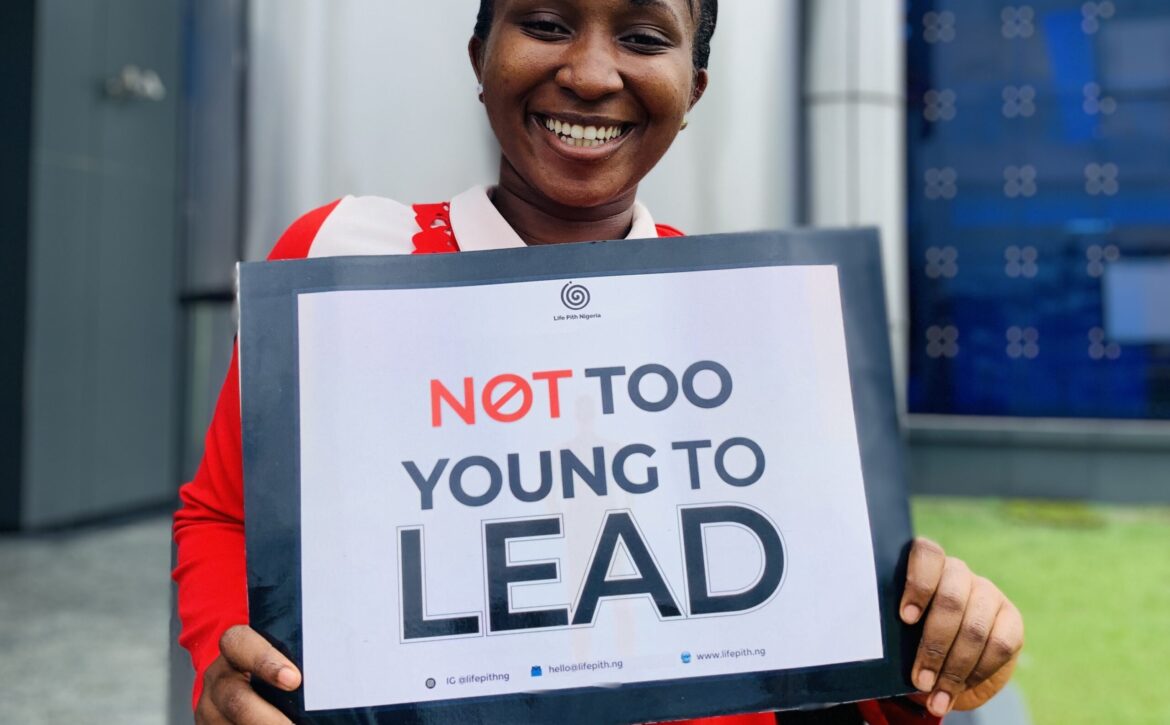TOO YOUNG TO LEAD?

There is a lot of discussion about whether or not young people can make effective leaders. There is a widespread perception that one’s leadership influence is mostly proportional to their age. This can make it challenging for younger people to face the challenges and embrace the opportunities associated with change. This presumption needs to be called into question.
Age alone is not sufficient to qualify one for good leadership; one must also possess exceptional characteristics and talents. Young individuals typically have traits that are associated with being successful leaders, such as intelligence, inventiveness, decisiveness, and resilience. Successful leaders often possess these traits. By taking a broader perspective on the situation, we may better understand the dynamic abilities that young leaders possess.
Young leaders frequently have novel ideas and insights. They have an excellent awareness of current trends, technology, and cultural upheavals because they were raised in a constantly changing world. They have a fresh perspective on known notions and encourage the development of novel solutions because of their unique histories and life experiences. Young leaders can benefit organizations by bringing fresh perspectives and ideas that can help them develop and innovate. To be an effective leader in today’s constantly evolving environment, it is necessary to have the ability to quickly adapt to new conditions. Young leaders are able to quickly adjust to new technologies and triumph over challenges; this enables them to make the most of opportunities and lead their teams to victory. A potential leader needs to be able to adapt to changing circumstances quickly and effectively.
An example of a young leader is Rania Al-Mashat, the Egyptian Minister of Tourism, who started her work as an economist for the IMF when she was just 25 years old. Al-Mashat was appointed as the sub-governor and head of the Monetary Policy Department for the Central Bank of Egypt at the request of the Egyptian Minister of Investment. She assisted in creating and presenting the government’s economic program after the Arab Spring in 2011, then relocated back to Washington, D.C., five years later to work as the IMF’s senior economist. She went back to Egypt in 2018 and was appointed Minister of Tourism. Another example is Chicago-born social entrepreneur Jackie Jackson, age 17. He started a charitable organization called ‘Am I’ when he was just 8 years old. After assisting his aunt in distributing food to the nation’s destitute, he had his first dream. He currently gives homeless people what he calls “Blessings Bags,” which contain items like deodorant, hand sanitizer, water bottles, and toothbrushes. More contributors have expressed interest in his idea, which has already had a positive impact on more than 40,000 people globally.
It is impossible to exaggerate how vital it is to acknowledge the leadership potential of younger generations. Powerful figures, such as former President Barack Obama and others, have acknowledged the power and influence that younger generations possess. When asked about the power and influence of young people, Obama reportedly said, “We should never underestimate the power and impact of young people.” Young people are full of energy, innovative, and have ideas that are unique; all of these factors contribute to the positive impact that young people have as leaders.
Despite their unique abilities and passion, young leaders sometimes struggle with leadership’s intricacies. Inexperience is one issue. Young leaders may not have had enough time to learn from years of professional and leadership experience. Thus, they may lack the abilities to make educated judgments or resolve difficult challenges. Inexperience with political settings and power relations can lead to mistakes. Young leaders may also face opposition from elder colleagues or opponents who feel intimidated by their ascension to leadership. Resistance can include undermining their authority, criticizing their talents, or hindering their efforts. Resilience, communication, and coalition-building are needed to overcome such opposition. Young leaders may struggle to combine personal goals with constituent or supporter expectations. High expectations and rapid results can be stressful. They may also struggle to satisfy distinct groups with different needs and goals.
The notion that younger people are incapable of leadership is one that needs to be rebutted and debunked. Young leaders are challenging age-based preconceptions and displaying effective leadership traits by making use of their distinctive points of view, accomplishing measurable results, demonstrating adaptability, and reacting with passion and enthusiasm. It is essential to recognize rising young leaders and give them the tools they need to succeed so that they can affect positive change in their respective industries.
References
- Demand Africa. (2019). These Young African Politicians Are Changing The World. Demand Africa. https://demandafrica.com/travel/culture/young-african-politicians/
- Youth Leaders Who Inspire Us. (2022). In a Perfect World. https://iapw.org/news/inspiring-youth-leaders












